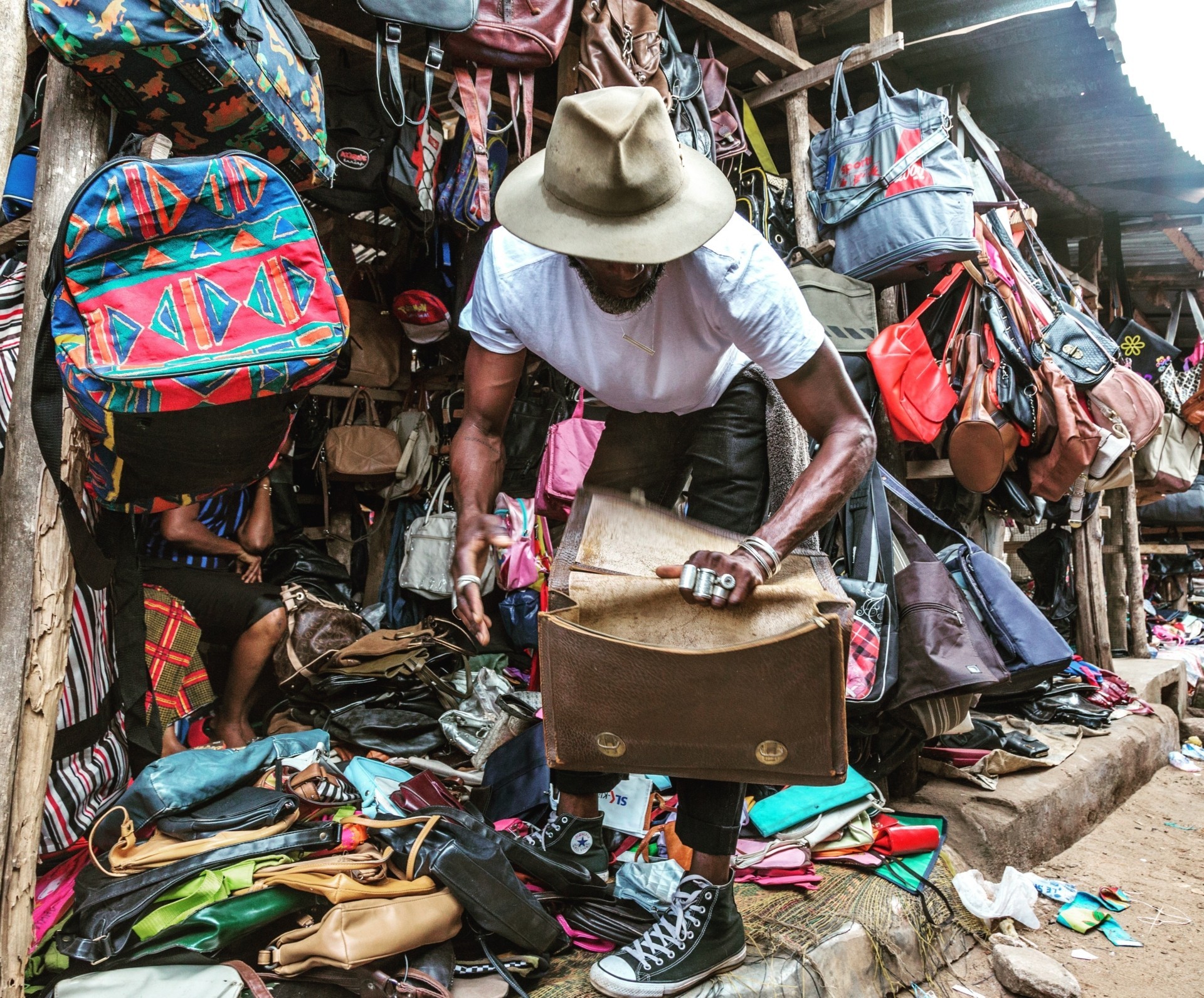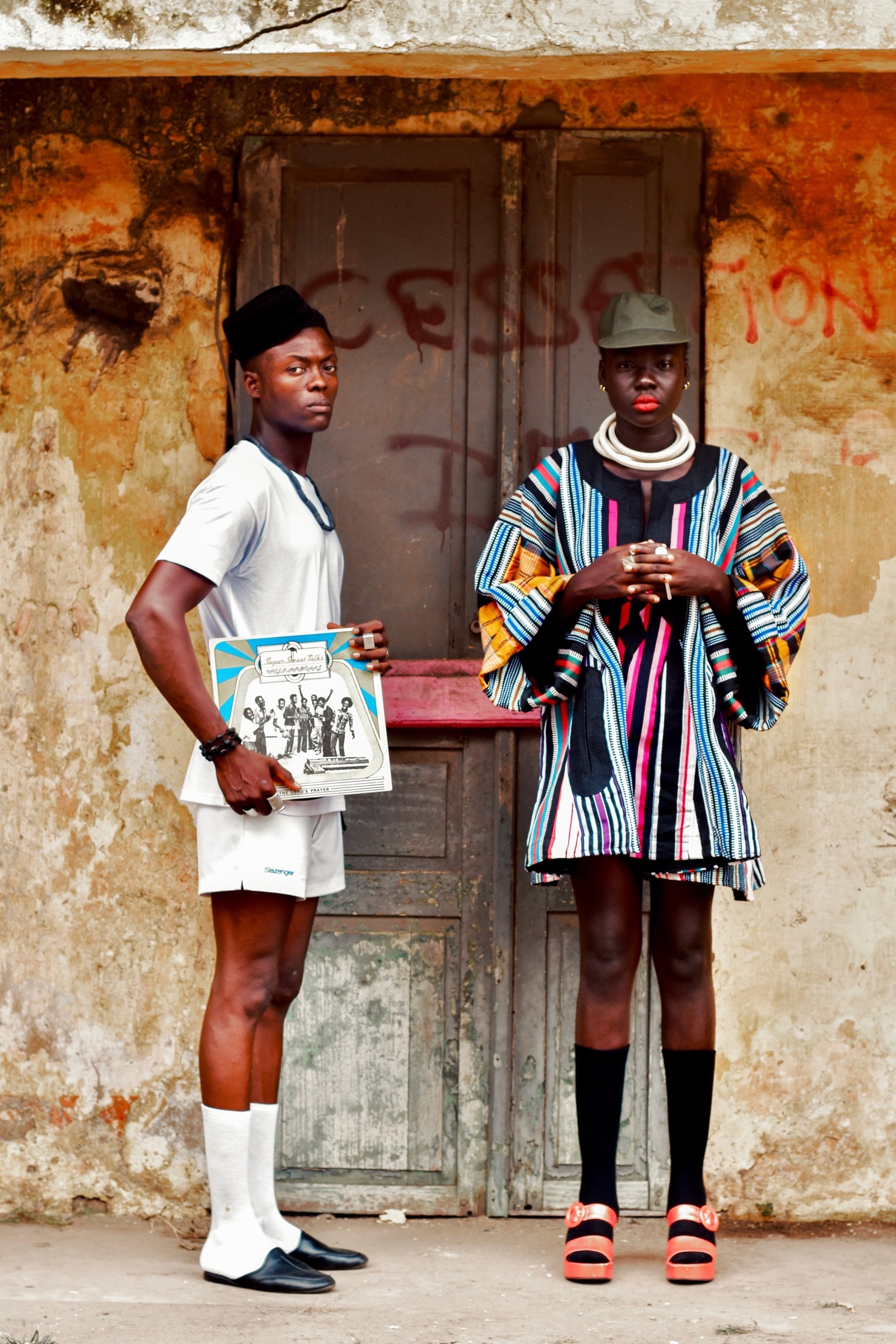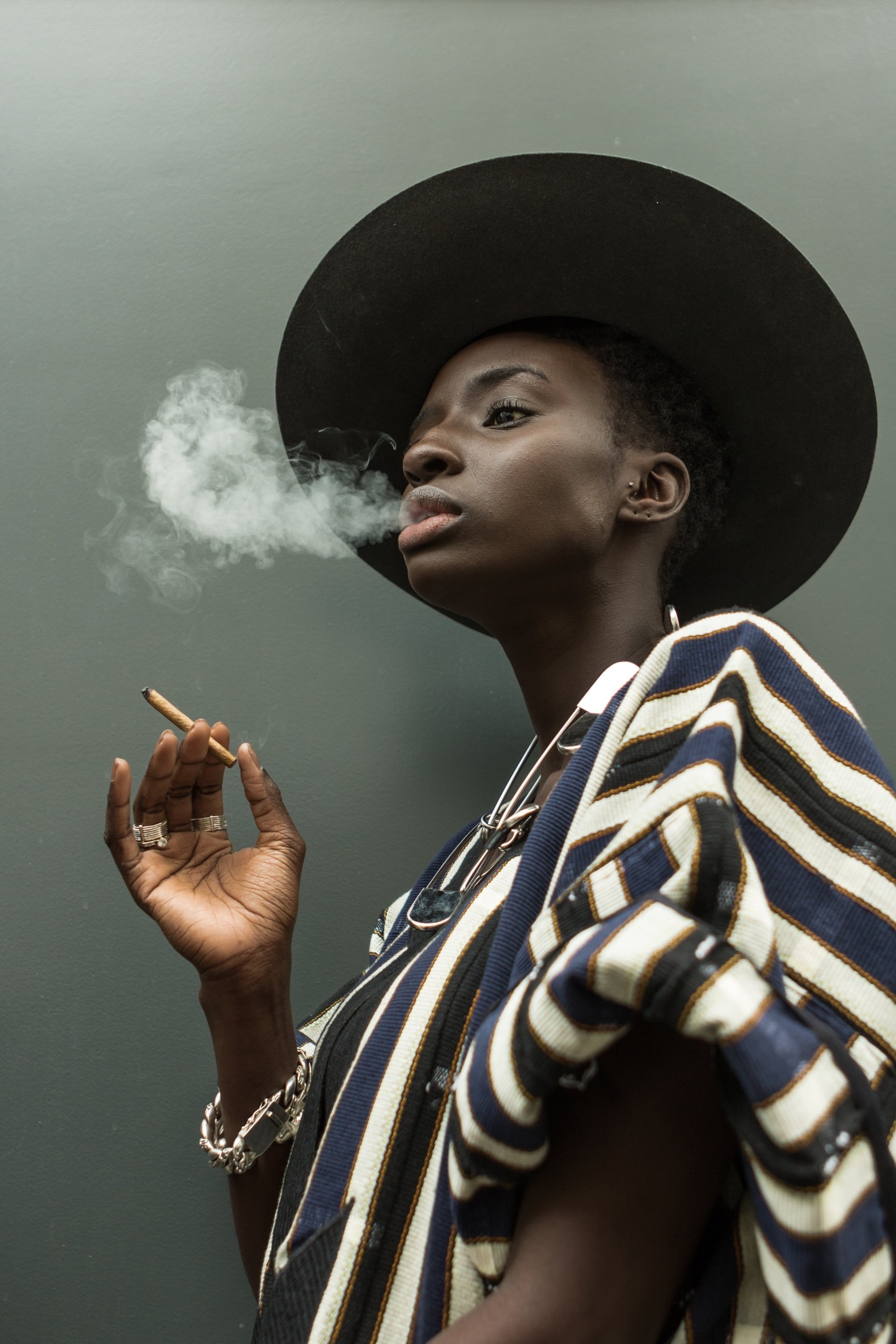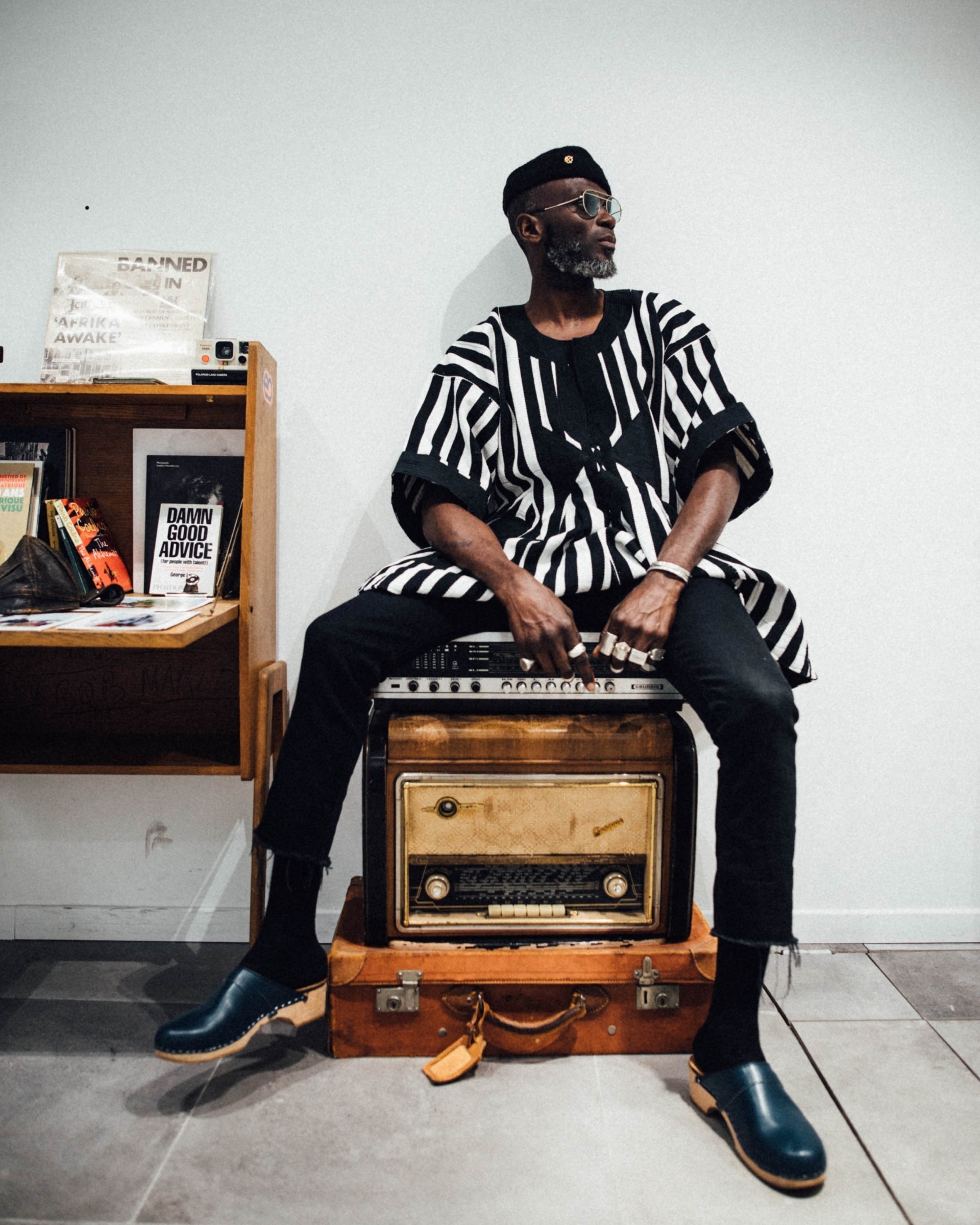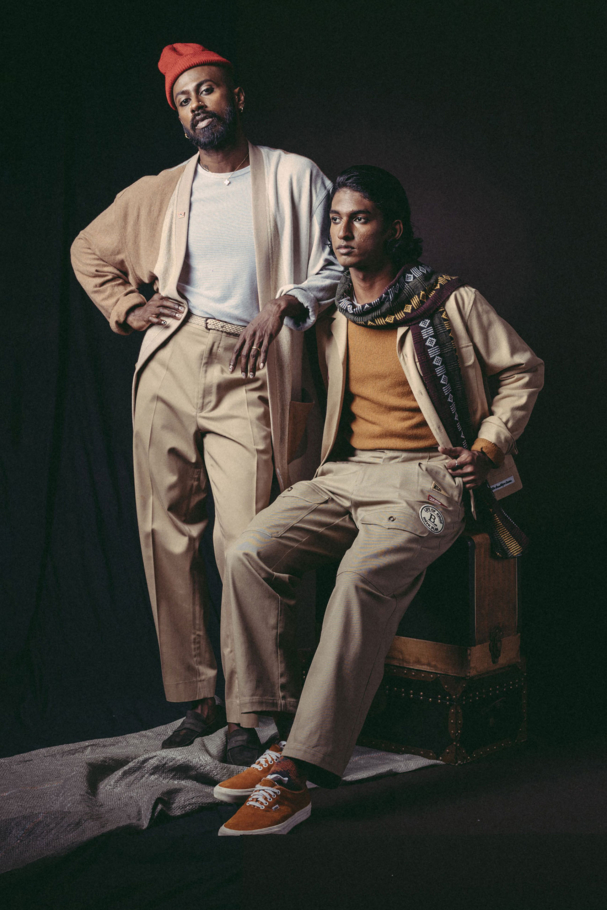
BKc X Life of Kings.
Who is Amah Ayivi and how did you end up in Paris?
I’m Togolese, and was born in Lomé. I came to Paris with my uncle when I was 12 years old for my studies. I left my dad, mum, and brother in Togo.
What were you doing before Marché Noir?
I did many things in my life straight before Marché Noir and the vintage business. I was a casting director for almost 11 years. I did castings for music videos, big companies, and agencies like McCANN, Ogilvy, Publicis, etc. I still do castings for some good projects like for Junya WATANABE shows, Canal+, and some shootings. I owned an African restaurant outside of Paris with one of my friends for 2-3 years. After all these experiences, I dropped my luggage in Comptoir Général in 2012 as the face and General Manager, and became one of the CEOs in 2014. The story of Marché Noir started before Le Comptoir Général, but started as a business there in 2012.
How were you introduced to vintage?
I think vintage was always in my DNA. I was introduced to vintage when I was 12 years old. When I came from Togo with my uncle, we lived nearby the biggest vintage market in France called “Les Puces de Saint Ouen”. I became curious about it at 15. I remember at that age wanting to be unique when I was dressing, and vintage helped me with that.
The Marche Noir concept is sustainability at its heart. How did you come up with the concept?
Yes. The concept at its heart is sustainability because I really never liked buying new clothes. I wanted to have my own style. That is why I went deep into vintage, from the army stuff… to workwear…. to Antik. The concept came along because the more you like real vintage, the more you like well made products and good materials. The upcycling and business part came later after the style issue.
The business takes you to Africa often to source and shop for second hand items. How important is traveling and connecting with the local market, to the heart and sole of your business?
When I started selling vintage as a business, I went straight to Lomé because I knew that we had a huge market there with vintage and secondhand goods. The secondhand market in Lomé is one of the biggest in West Africa. I decided to go to Africa because, a) I wanted to work with my people and pay them more than the local price, b) It was also a militant act for me being that all the stuff in the market came from Europe, and they send everything there like trash. My thing is “you send it as trash. I bring it back as treasure and sell it to you”. At that point you can see the recycling part, and the value. In addition to vintage, I redesign traditional pieces called Batakali. It is based on Ghanaian/Togolese attire made with an African fabric called Kente. It’s a craft work so I can’t produce that much, but it keeps it sustainable which is very important for me. To promote and spread the message around these pieces, I do it through the styling.
With traveling restricted and the world on hold, what have you done to sustain your business?
With this situation, I decided to push the e-shop.
Sustainability sometimes feels like something available to the knowledgeable, the select few. How do you scale and take it available to more people?
It’s true. Everything I do is based on style, and through true styling you can sell the message and the clothes. As soon as people are open to watch your style, most of them can get the message behind the styling.
What do you think is the future of upcycling? Will the bigger companies figure out how to replicate these concepts and make it more accessible?
I’m sure the future in clothing will be sustainable, and upcycling we can see it now!!! Something needs and has to change in this industry. Big companies won’t have a choice but to adapt their business in this direction.
Any great collaborators or collaborations in your history or future?
Yes. I’m collaborating with my brothers from ACF. We have an agency together and we do consulting based on the culture. More people around the world want Black lifestyle. They want our vibe although they don’t want to tell it like that, so we are trying to give them what they want through installation and events.
